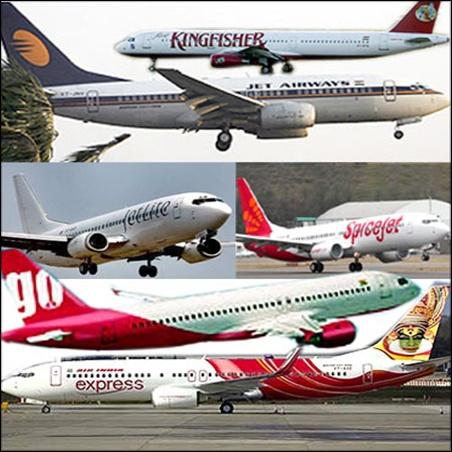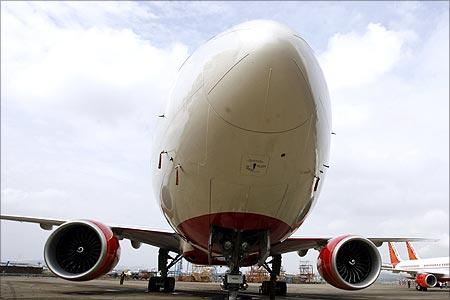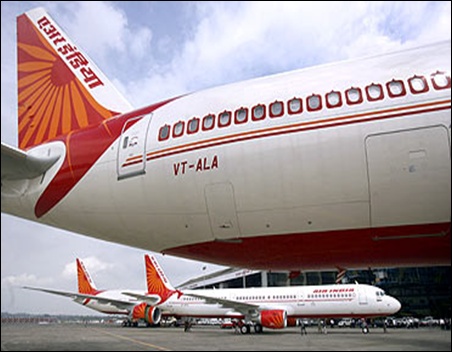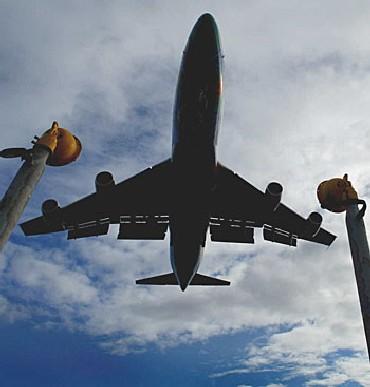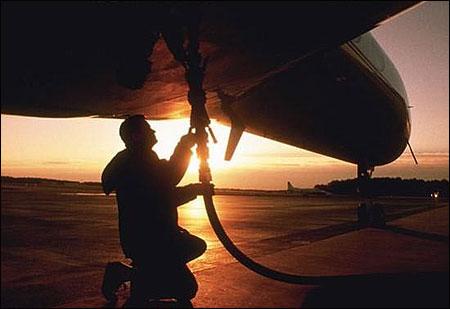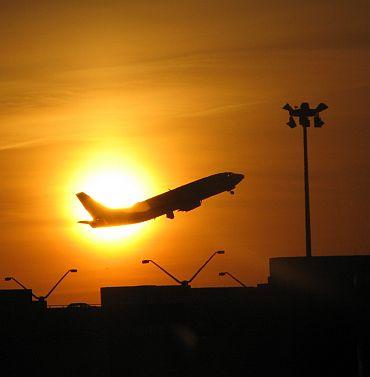 | « Back to article | Print this article |
FDI in aviation: All set to take off
Senior ministers will meet on Tuesday to take a decision on the contentious issue of permitting foreign airlines to invest in domestic carriers.
The meeting will be attended by Civil Aviation Minister Ajit Singh, Finance Minister Pranab Mukherjee, Petroleum Minister S Jaipal Reddy and Commerce Minister Anand Sharma.
Also, on the agenda are decisions whether to allow Indian carriers to directly import fuel, which could lead to Rs 2,500 crore (Rs 25 billion) worth of annual cost savings for airlines, and extend the credit period given for payment of airport fees and fuel.
Click here for Rediff Realtime News!
Click NEXT to read further. . .
FDI in aviation: All set to take off
A final decision on the foreign direct investment issue is crucial, especially at a time when many domestic carriers have been deep in debt and require a sizeable infusion of cash, which is not available in the domestic market.
Many international carriers such as British Airways, Singapore Airlines and Air Asia, among others, had shown interest in investing in Indian carriers.
The domestic airline industry, despite a feared slowdown, has been doing reasonably well, with passenger growth at 18 per cent in the last calendar year.
Click NEXT to read further. . .
FDI in aviation: All set to take off
It is expected to grow at a comfortable clip of above 15 per cent this year.
The market has seen fares go up by around 15 per cent.
Also, cash-strapped carriers like Kingfisher Airlines and others like Jet Airways and Spice Jet to name a few would require over Rs 6,000 crore (Rs 60 billion) merely to address their losses and much more to expand.
Varying views have been put on the table on what should be the cap for foreign carriers wanting to invest in Indian carriers.
Click NEXT to read further. . .
FDI in aviation: All set to take off
"The group of secretaries has recommended allowing foreign carriers to buy up to 49 per cent in Indian airlines and that will be discussed in the meeting of ministers," said a senior civil aviation ministry official, who did not wish to be named.
Earlier, the ministry had recommended a figure of 24 per cent but the commerce ministry wanted it to be at 26 per cent.
The commerce ministry felt no foreign carrier would come if it did not get a say (which it would if allowed to buy 26 per cent).
Click NEXT to read further. . .
FDI in aviation: All set to take off
The civil aviation ministry was averse to 26 per cent as that could triggers an open offer, giving 20 per cent more to the buyer.
The group of secretaries has also recommended allowing airlines to import fuel directly rather than buying it from oil marketing companies.
The move would help airlines save at least Rs 2,500 crore (Rs 25 billion) annually, a fourth of their total aviation turbine fuel bill of Rs 10,000 crore (Rs 100 billion).
Airlines buy ATF from oil companies.
It is imported on their behalf.
That is why they have to pay hefty states sales tax.
Click NEXT to read further. . .
FDI in aviation: All set to take off
The average sales tax on ATF in India, 24 per cent, is the second highest in the world, lower than only Bangladesh's 27 per cent.
The civil aviation minister is also likely to discuss the financial woes of Air India with the finance minister and ask for support in paying its wages.
"The government has to pay us Rs 550 crore (Rs 5.5 billion) for VVIP flights.
"We'll ask for Rs 250 crore (Rs 2.5 billion) more from the contingency fund," said a senior Air India official.
